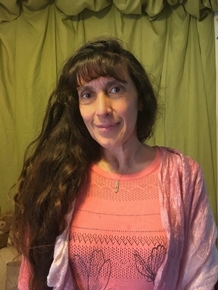
Associate professor, Department of Movement, Human and Health Sciences / University of Rome “Foro Italico”
Just for fun, or just for spending calories? Physical activity games, cognitive function and educational achievement
18 November, 10h40-11h35
Theory
In several decades of research on the relation between physical activity and cognition, emerging inconsistencies, especially at developmental age, suggest the need to look at existing evidence on the exercise-cognition relation from different perspectives, considering aspects of this relation that are still relatively neglected. Advancements in exercise neurosciences, embodied learning research, and physical activity pedagogy are converging toward relevant intersections that may contribute to the actual debate on the mechanisms underlying physical activity effects on the developing brain and cognition and inform redesign in physical activity and physical education. I focus on these intriguing intersections among different research areas, which are proposed to shed light on how designed activities and environments may be used to meet with one deed two needs: skill acquisition and cognitive enhancement. To transition theory into practice, I propose to reframe principles developed to foster motor learning into emerging models of embodied cognition and cognitive development promotion. I conclude looking at holistic physical activity interventions that address the joint promotion of motor and cognitive development from a health-related and social equity perspective.
(Virtual) practice
I propose an educational approach to holistic child development through physical activity (PA). Starting from the education of the body and bodily motion, this approach pursues the goal of providing a developing citizen with motor, cognitive and life skills, riding the wave of children’s natural love for movement. I will show videos of sample games and suggest a number of alterations. The game multiplier are the principles of variability of practice. I will explain the logic behind those games, thanks to essential information on how to teach and make them work. The Ariadne’s thread in the maze of games is the task-analysis – tailored to understanding the different demands of each game and game alteration in the domains of physical fitness, motor coordination, cognitive functions and life skills. I will exemplify how each PA game alteration, targeted to vary the demands in one domain, can influence the other domains jointly.
Bio:
Caterina Pesce is graduate in Physical Education, degree in Movement and Sport Sciences, master of Psychology (Universities “Foro Italico” and ”La Sapienza” of Rome), and PhD in Philosophy (Free University of Berlin). Currently Associate Professor in Methods and Techniques in Movement and Sport, member of the Department of Movement, Human and Health Sciences of the University “Foro Italico” of Rome and founding member of the Italian Society of Movement and Sports Sciences. Her main teaching focus is on physical activity for children and older adults, her main research focus on exercise and cognition across the lifespan, rise and fall of motor coordination and enhanced physical education. She has 80 international and over 30 national published peer-reviewed articles, over 3000 citations, and is co-author of 9 international authored or edited books on exercise and cognition, physical education and quality physical activity for educational achievement also with focus on special needs. She is the editor/co-author of 2 national authored/edited books, one of which awarded by the Italian Olympic Committee. She is the mind behind the “Joy of Moving” method for holistic child development promotion through physical activity games, promoted at national level by the Italian Ministry of Education and indicated as a good practice in the national Recommendations for Physical Activity of the Italian Ministry of Health. She is on the editorial board of JSEP, IJERPH and Brazil J Mot Behav and AE for MENPA.
Keynotes at international conferences in the last years
| Year | Title | Conference |
| 2016 | Shifting the focus from quantitative to qualitative exercise: bridging theory and multicomponent practice | International Congress on Successful Aging, University of Valencia, Spain |
| 2016 | Variability of practice as an interface between motor and cognitive development promotion: implications for youth sport) | Youth Sport 2016 Meeting, Ljubljana, Slovenia. |
| 2017 | Thoughtful physical training: functional mobility and executive function training at old age | Academic satellite workshop in the IAIOS’ Training Festival 2017. Universitat de Valéncia |
| 2017 | Capitalizing on the cognitive “side effects” of movement to promote motor and cognitive development jointly: from neurosciences to policies | International Consortium of Motor Development Research (ICoMDR) Annual Conference. School of Sports and Leisure, Melgaço, Portugal |
| 2017 | Motor development as a cornerstone in holistic development promotion | Expert Symposium of the International Council of Sport Science and Physical Education (ICSSPE) on Physical Activity and Sport: Understanding the First Ten Years. Rheinsberg, Germany |
| 2017 | Exercise and cognition across the lifespan | Jornadas internacionales de investigación en Actividad física y Salud, Universidad de Castilla-La Mancha, Spain |
| 2018 | Eltern als Beweger: Kinder strukturiert anleiten und Sport fördern oder einfach spielen lassen? | the fit4future Kongress, Bad Griesbach, Germany |
| 2018 | Ambulo ergo sum. Les idées viennent en marchant | Clinique Le Noirmont, Le Noirmont, Switzerland |
| 2019 | Physical activity and cognition research: key insights to inform multidisciplinary research and practice for children with DCD | 13th International Conference on Developmental Coordination Disorder, University of Jyväskylä, Finland https://www.jyu.fi/en/congress/dcd13 |
| 2019 | Physical activity, skill acquisition and cognition | Skill Acquisition Conference. Kisakallio, Finland. |
Research gate link: https://www.researchgate.net/profile/Caterina_Pesce